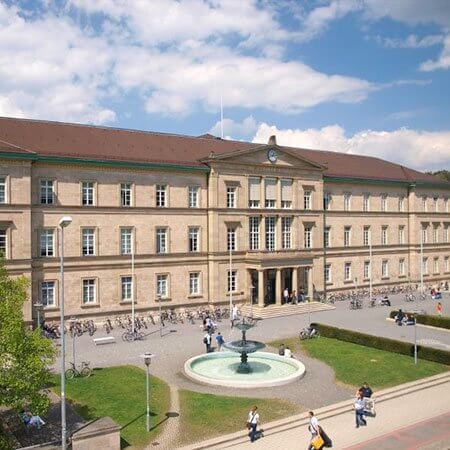A Bartholin gland abscess is a purulent inflammation of the greater vestibular glands of the vagina. As a rule, their size is 0.5 cm and they are not palpable unless the ducts are obstructed. In the case of duct obstructions, a secretion accumulates inside, stretches the glands, and if the outflow of the secretion is not restored, then it becomes infected with the formation of pus. The size of the abscess may reach several centimeters. You can undergo your abscess diagnostics and treatment in one of the German hospitals in order to get rid of this disease using minimally traumatic techniques, as well as to avoid complications and the recurrence of the abscess.
Content
- Surgical treatment
- Conservative therapy
To treat the disease, doctors implant a Word catheter. Less commonly, they resort to marsupialization, various ablation options, and very rarely doctors have to remove the Bartholin gland completely.
You can undergo your treatment in one of the following hospitals: University Hospital Rechts der Isar in Munich, Leverkusen Clinic, or University Hospital Tuebingen.
You are kindly welcome to leave your request on our website, and the Booking Health specialists will take care of the organization of your trip. They will recommend a specialized clinic and a doctor, develop a preliminary treatment program, and help you to get a visa and get to the clinic. The independent doctors working in the Booking Health company will control all the stages of your treatment. The cost of your treatment will be the same as it is for German citizens. A medical interpreter will accompany you to the clinic.
Surgical treatment
In most cases, doctors use minimally traumatic techniques for the treatment of Bartholin gland abscess in Germany. Classical operations are performed only in severe cases, when minimally invasive techniques have not worked.
Word catheter placement
A Word catheter placement is a minimally invasive procedure, the primary treatment for Bartholin gland cysts and abscesses in developed countries. Doctors make an incision only 3 mm long. This is usually a vertical incision on the mucosal surface of the labia minora to avoid visible scarring and reduce the risk of displacement of the Word catheter. Pus is removed from the cavity of the abscess.
The evacuated purulent discharge is sent to the laboratory for a bacteria culture test. Based on the results of this test, the sensitivity of the isolated bacteria to antibiotics is evaluated, so that doctors can choose the best medicines for drug treatment of the disease.
Doctors insert the Word catheter into the abscess cavity so that the tip of the balloon is inside. The balloon tip is then expanded by injecting 3–5 ml of saline into the balloon. The outer portion of the Word catheter remains in the vagina for convenience and lowers the risk of its displacement.
The method offers the following benefits:
- minimal trauma rate;
- performance on an outpatient basis;
- the duration of the catheter insertion procedure is 10 minutes;
- the risk of complications is not more than 1%;
- the probability of recurrence is only up to 10%;
- lack of large scars;
- rapid rehabilitation;
- restored duct patency, which reduces the risk of a cyst or abscess in the future.
The catheter remains in the abscess cavity for more than 1 month, after which it will be removed. During this time, a framework of connective tissue is formed around the tube, and a new duct of the Bartholin gland is actually formed. The secretion flows normally through it, cysts usually do not form, so the likelihood of a repeated abscess formation after this procedure is minimal. If the abscess still develops again, then the drainage of the abscess with a Word catheter placement can be repeated.
Marsupialization
One of the first methods of treatment and the most common operation in the twentieth century was marsupialization. Today, this operation is often performed in countries with poorly developed medicine. Doctors in Germany use minimally invasive techniques, and marsupialization is only resorted to in extreme cases: if the abscess cannot be eliminated with a Word catheter placement, or if it recurs after treatment.
The operation is performed by a gynecologist in the operating room. The doctor makes an incision 2 cm long, outward from the level of the hymen, twists the tissues with the edges of the tweezers, and sutures them to the surface of the mucous membrane with interrupted absorbable sutures.
Other treatment methods
Other, less common procedures and surgical interventions for a Bartholin gland abscess include:
- ablation ("cauterization") with silver nitrate;
- carbon dioxide laser vaporization;
- Jacobi ring placement;
- Bartholin gland excision is used as a last resort, when other treatments have been ineffective.
Conservative therapy
Conservative therapy is used in addition to surgical treatment. It is possible to use sitz baths with antiseptics, antibiotics, painkillers, and anti-inflammatory drugs.
Antibiotic therapy is not used for every identified abscess. This can only be carried out if clinically indicated:
- systemic symptoms, including fever;
- high risk of abscess recurrence;
- abscess recurrence after treatment.
If the causative agent is unknown, then antibiotics should be effective against staphylococci, especially methicillin-resistant strains of Staphylococcus aureus, the main types of streptococci, as well as intestinal gram-negative aerobic bacteria, including Escherichia coli.
When performing surgical treatment, doctors usually collect pus and do a bacteria culture test. Therefore, after a few days, the causative agent of the infection becomes known, which makes it possible to select targeted antibiotic therapy for the disease.
If you are going to have your treatment of Bartholin gland abscess in Germany, the Booking Health service will be helpful. Here, you can compare the cost of therapy and make your treatment appointment in one of the German medical centers at the best price. The Booking Health specialists will help you to choose the most suitable clinics in Germany and organize your trip.
Authors:
This article was edited by medical experts, board-certified doctors Dr. Nadezhda Ivanisova, and Dr. Bohdan Mykhalniuk. For the treatment of the conditions referred to in the article, you must consult a doctor; the information in the article is not intended for self-medication!
Our editorial policy, which details our commitment to accuracy and transparency, is available here. Click this link to review our policies.
Sources:
Verywell Health
Sience Direct




















